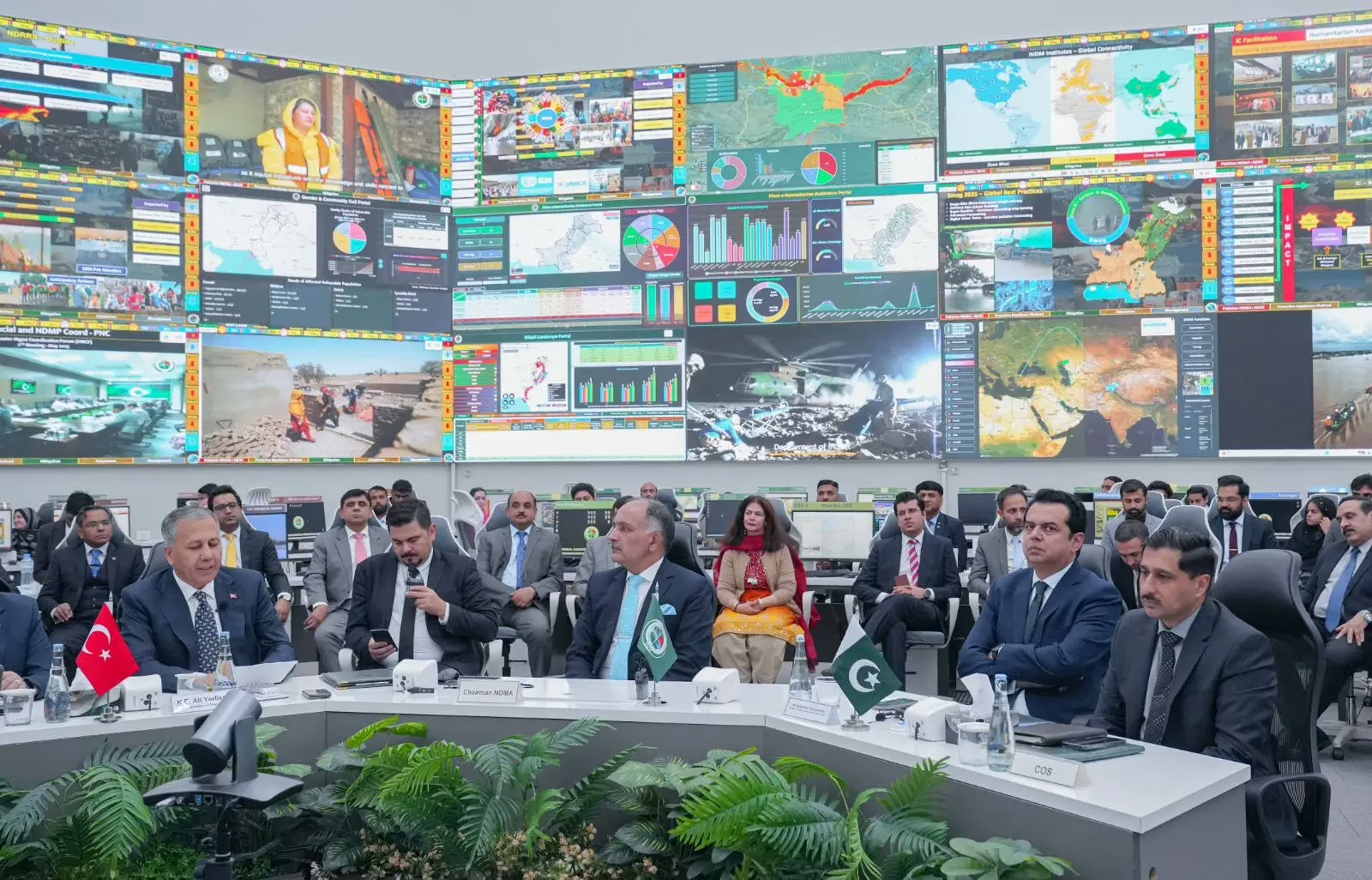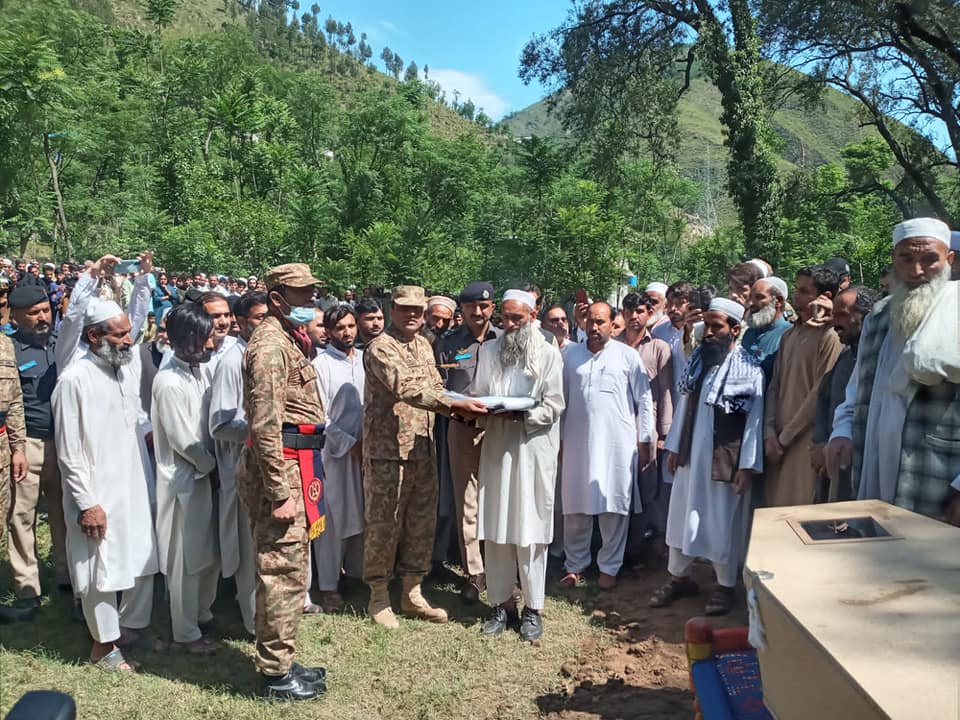A high-level delegation led by H.E. Ali Yerlikaya, Minister of Interior of the Republic of Türkiye, accompanied by Mr. Ali Hamza Pehlivan, President of AFAD (Disaster and Emergency Management Authority of Türkiye), visited the National Disaster Management Authority (NDMA) Headquarters in Islamabad today. Minister of State for Interior Mr. Talal Chaudhary also accompanied the delegation.
The delegation was briefed on NDMA’s technology-driven transformation in disaster management, including early warning systems, real-time data integration, and risk-informed preparedness mechanisms.
Chairman NDMA Lt Gen Inam Haider Malik highlighted the Authority’s evolving role as the lead national coordinating body for disaster risk management. He emphasized NDMA’s strategic shift from a reactive response system to a proactive, anticipatory model focused on preparedness and resilience.
He noted that Pakistan ranks as the fourth most vulnerable country globally to climate-induced disasters, underscoring the need for enhanced cooperation, knowledge exchange, and advanced disaster management technologies.
Discussions reaffirmed the enduring partnership between Pakistan and Türkiye in humanitarian response and resilience building. NDMA has proposed the development of a facility near NEOC, linked to a global center to track disaster trajectories and formulate tech-driven strategies.
H.E. Ali Yerlikaya commended NDMA’s proactive initiatives, resilience-building efforts, and modern preparedness systems. The Turkish delegation expressed interest for the establishment of the Joint Pak-Turkiye Facility in Pakistan and reiterated its commitment for technology-based collaboration with NDMA & AFAD to strengthen disaster preparedness and climate resilience.
Both sides emphasized the importance of enhancing bilateral and regional cooperation in disaster risk management, capacity building, and technical exchange.






